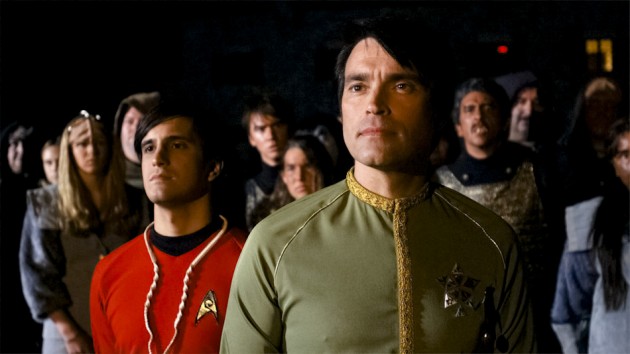If you listened to the most recent Gamer’s Tavern episode, you might have noticed that I seemed to be the Negative Nancy for Kickstarted games. I also probably came off as a Luddite, but my love for technology is a subject for another blog. I know I sounded down on the concept, but I promise, I really do love Kickstarter, IndieGoGo, and crowdfunding in general. Let me explain why I said what I said on the episode.
I knew that both Ross and Jesse would be firmly in the “Kickstarter is the greatest thing ever” camp because, well, both of them have successfully used Kickstarter in the past to fund their own projects. Because I come at it as a reporter, I see it a little differently. Sure, I see all the successes, but I also see the abject failures as well. And I don’t mean just “Oh man, that one didn’t quite meet its funding goal”. I mean “Holy shit, what the fuck were these people fucking thinking when they pitched this stupid fucking idea?!”
Crowd funding’s greatest strength is that it allows anyone, regardless of their previous experience, get capital to start a creative project. It’s greatest weakness is that it allows anyone, regardless of their previous experience, get capital to start a creative project.
What I mean by that is anyone can put together a project for Kickstarter. The prerequisites to start a Kickstarter are minimal. I personally have had dozens of ideas for potential Kickstarters I’ve wanted to run before I started this site (and frankly, I considered doing a Kickstarter for Gamer’s Tavern before I launched). If I wanted to do a Kickstarter, I would do a lot of work before I launched. I would have the project is as close as completed as I could get it, I would research the market and the costs involved, I would factor in taxes and the cut that Kickstarter/Amazon take from the donations, I would spend a long time crafting and editing my proposal, etc. This is exactly what Ross, Monte Cook, Reaper, Dwarven Forge, Onyx Path, Cool Mini or Not, Brian and Matt James, and many other companies and game designers did and it’s why their Kickstarters were successful.
The problem comes up – and I see this far, far too often when I’m researching projects for my AICN Tabletop column – when people throw something together at the last minute based on a good idea or maybe a prototype. Crappy card games, crappy board games, crappy roleplaying games. I never mention them on the site because, honestly, it feels like kicking a sick stray puppy to use AICN to bash these guys. But they’re all over the place. It saddens me every time I see something like that, especially when it’s a really cool idea. If these people had put the time and energy into the project that it required, it would’ve been amazing. But they didn’t, and if it gets funded, that’s when disasters like Glory to Rome or The Doom that Came to Atlantic City happen.
I’ve seen a lot of people ask on Reddit, ENWorld, RPGnet, and other places what reporters look for when picking which Kickstarters to promote. The first time I saw it, it took me a while to formulate an answer because it’s a delicate balancing act, weighing the needs of the content producers against protecting my readers from putting money into a project doomed for failure. I examined my process and found out there were a few steps I went through every single week.
- Is this a cool idea? Does this project have something new to offer, or at least a new spin on an old concept? Will it be fun to play, or make my other games fun to play when it comes to accessories? Is this something I really want to have on my shelf?
- Did they put any effort into the pitch? Do they do a good job describing the product? Does it look like they edited the text or just threw up a drunkenly written rough draft? I mean seriously, who do these people think they are…me?
- Who is running this thing? Do I recognize the name behind the Kickstarter? Now I don’t mean the designer or artist or writer, I mean the actual person running the Kickstarter. Keith Baker designed The Doom that Came to Atlantic City but had nothing to do with that abysmal Kickstarter. Keith Baker is an industry professional, and I’d back any Kickstarter he ran in a heartbeat. That Kickstarter was run by a guy named Erik Chevalier who I’d never heard of before and who simply licensed the game from Keith. I have no problems supporting an unknown, and I actually prefer giving a boost to new blood in the industry. But again, I want to protect my readers so my recommendations continue to hold weight in the future. Therefore, to make sure there’s a good chance the person behind the Kickstarter, I always…
- Check the Risks and Challenges section. “We’ve already got it designed, so there’s no risks since all we have to do is print it!” Close tab. You know nothing about the industry because printing and shipping is where everything can go wrong. It’s exactly what happened to Ed Carter. He forgot to make a note to his printer to not stack the cases more than 3 high and half his inventory was crushed in shipping. If I don’t see a realistic assessment of what could go wrong, I’m not going to give you the rope to hang yourself and I’m not going to damage my readers with a potentially disastrous investment.
Kickstarter is the great equalizer. It gives everyone an even footing. Major publishers with a long track record, long-time designers looking to create their passion project that they own, or just some kid in his bedroom with a cool idea. It’s a tool that, if utilized effectively, allows anyone to chase their dream, and for that, it is one of the greatest things to come out of the internet age. I really do love what crowdfunding can accomplish, I just want to make sure that those looking to chase this dream do so with forethought and knowledge of exactly what it entails.



